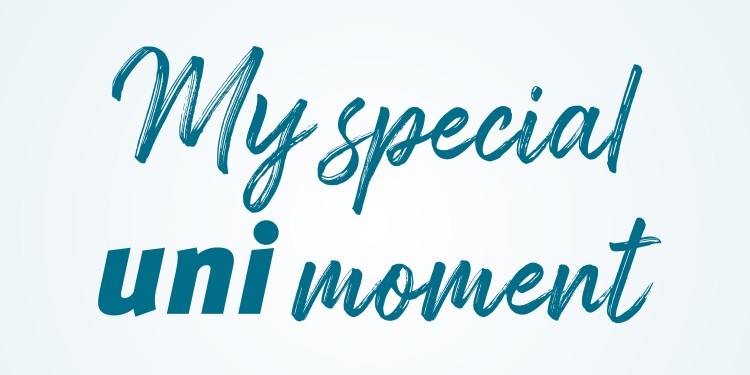
Review of the year 2023: My special uni moment
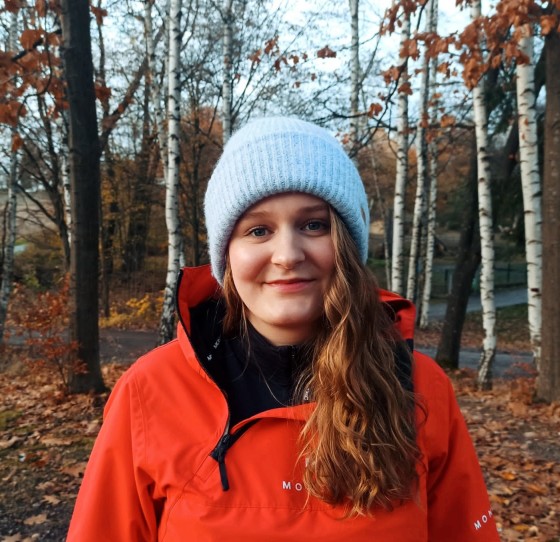
When I arrived in Taiwan on March 11, I couldn’t imagine the adventure which was waiting for me there. The reason for my stay was to collect fog water at the Lulin Observatory, which stands at an altitude of 2,873 metres in the beautiful Yushan National Park. Besides three weeks of successful measurements, I enjoyed impressive tea ceremonies, tasty hotpot dishes, tours around a wide variety of night markets, a bicycle tour through rice fields, visits to temples – and a round trip which, among other things, took me not only to Hualien for extended walks in the Taroko National Park, with sightings of the Taiwanese black bear, but also to the capital Taipei. The research project was the highlight of my year and the best thing about my bachelor course. A big thank-you from me to Prof. Otto Klemm, Kerstin Klemm and the climatology working group at the Institute of Landscape Ecology.
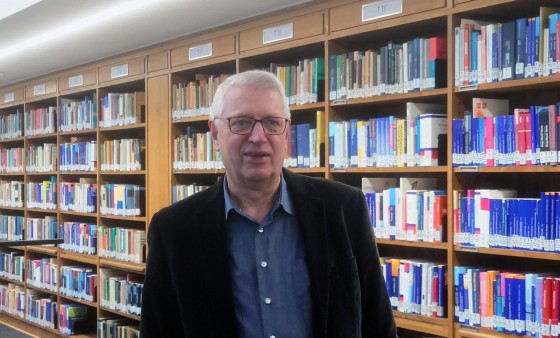
As the Head of the Economics Faculty Library, the highlight of my year was the re-opening of the library under the new title of Forum Oeconomicum. What impressed me in particular was the engagement shown by so many people both outside and, especially, within the University who, through the outstanding way in which they all worked together, made this project such a resounding success. With a lead time of more than four years and a construction period of around two and a half years, we have succeeded in providing the students of our faculty with not only a new learning environment but also at last a place where they can meet and cross paths again and again. This can help to prevent students possibly feeling lonely in this, the largest faculty at the University. The Library’s real-time system showing where work stations are available, and the fact that our Learn Labs are always used to capacity, are impressive evidence of the success of the library’s conversion. For me, the new Forum Oeconomicum is also an outstanding example of how the preservation of historical buildings can be combined with modernity.
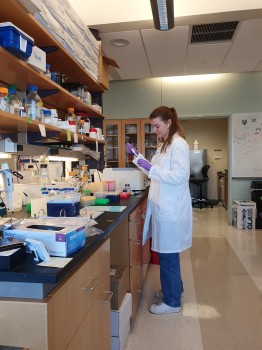
This year I was especially pleased to have been accepted for the Clinician Scientist programme “CareerS” at Münster University. In the summer, I returned from a research stay in the United States and began my further training as a doctor specialising in gynaecology and obstetrics at Münster University Hospital. Training as a clinician scientist gives me an opportunity to follow up my projects in the US and continue my research into tumour environments in breast cancer, incorporating into my training as a specialist the knowledge I gained thematically and in methodology. I was given a warm welcome in the laboratory in my clinic, and I found new colleagues and made new friends on the CareerS programme. It’s not only the scientific discussions that fascinate and influence me in research work, but also especially the cultural exchanges: as part of an international team, I learn something new every day – and not only in my specialist field.
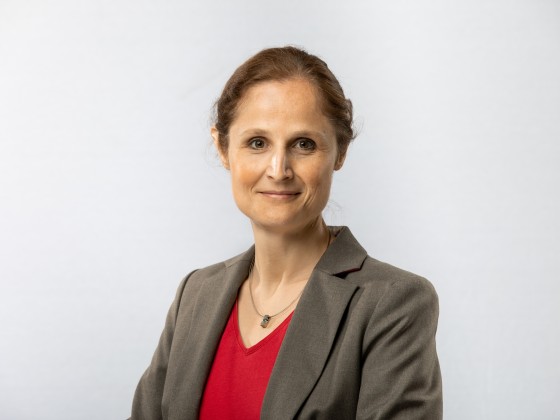
“I didn’t realise that at all before” or “If only I had known that earlier”: comments such as these act as a great motivator for me in the training sessions which I offer on the subject of compliance here at the University. Most of my work tends to take place in the background or in confidential surroundings. For this reason, it was an especially refreshing change – and my highlight for 2023 – that I was able to provide answers to questions in direct discussions in training situations and to get immediate reactions. Since late 2022, the subject of compliance has been part of the onboarding seminar “The Uni and I” for new staff. In addition, we offer general compliance training for any member of the University staff who is interested – both in-person sessions and as web seminars. It’s always interesting to hear which terms and regulations are familiar to people or are less well-known. What encourages us in our work in the Compliance Office is the fact that all members of the University are committed not only to the existing laws and regulations but also to value-based cooperation, as expressed in our 2023 Code of Conduct.
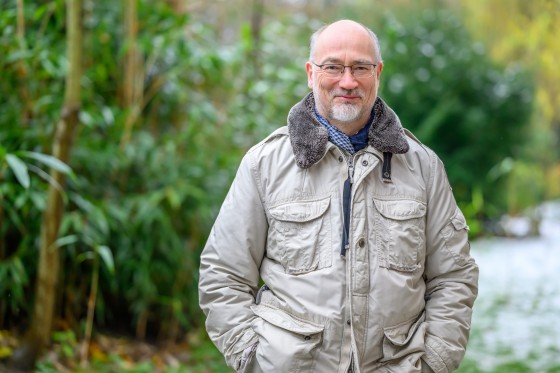
Along with two colleagues from the United States and France, I received my fourth Research Grant from the Human Frontier Science Program (HFSP) in the spring – which was a very nice coincidence, because, at the same time, I and my project partner from the University of Pittsburgh were invited to be keynote speakers at the first conference on the subject of de novo genes, held in Texas. De novo genes are genes which occur in an impromptu fashion in non-coding parts of the genome. Their existence is a new discovery which is radically changing our understanding of evolutionary biology and of how complex organisms develop. It was interesting to see how many groups worldwide are latching on to the subject and contributing new technologies. The experimental and the computative methods are driving one another on. It’s fascinating to follow the development of this field of research, from the first steps to such a stage of maturity – and to have played a part in shaping it.
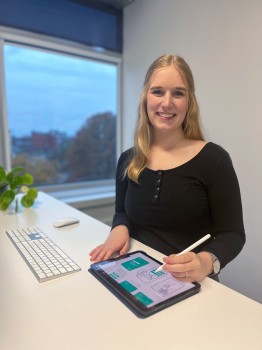
In August I began my third year of training with a new project – advertising the Citizen Science competition. In the process, I had an opportunity to go beyond my main focus on ‘digital and print’ and get a taster of producing a video. The objective was to use several Instagram reels with former winners, as testimonials. I planned and was involved in the project from the very beginning – from drawing up the storyboards to filming and editing the video. It gave me a lot of pleasure to work with different people and to produce something that can be watched again and again and reaches a lot of people. For me, it’s always a highlight to see how we can give pleasure to colleagues with our work and spark their enthusiasm.
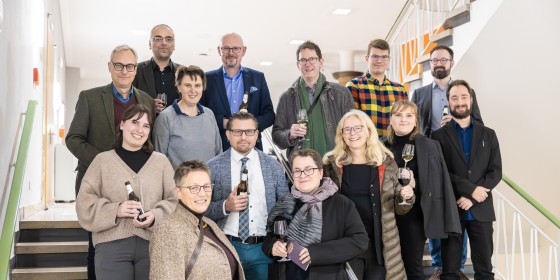
On 27 March 2023 I received the news that the German Research Foundation was to provide funding of around 3.3 million euros for the research group entitled “Local Xenocracy. Administration and Cultural Entanglement in Pre-Modernity”. This gives me – together with colleagues from Münster, Cologne and Freiburg – the chance in the next four years to use new, source-based arguments to think about, and argue about, how xenocracy and associated foreign rule are to be understood as a specific form of rule in the period before 1800 – and what role administrative processes played in bringing about, as well as reducing, attributions of foreignness. It was wonderful celebrating our success with a large number of colleagues in November with a ceremonial lecture by our colleague from Bochum, Markus Koller, on the beginnings of Ottoman rule in south-eastern Europe.
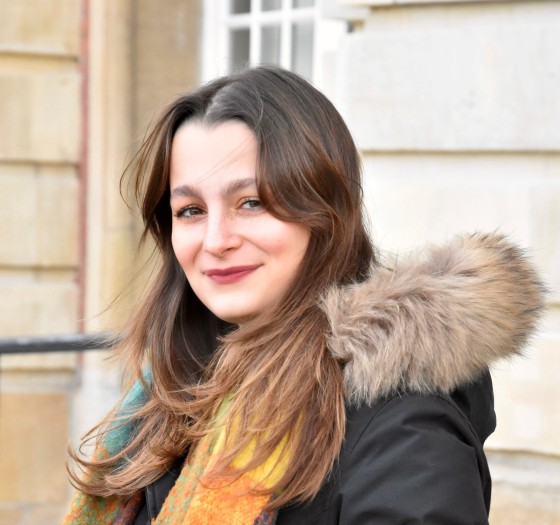
I had been looking forward for a long time to my Erasmus+ placement at the University of Münster. The time I already spent at the University of Münster Professional School, in the International Office and in the Department of Communications and Public Relations has broadened my horizons both professionally and personally. I encountered open-minded, supportive people who helped me to immerse myself in a culture and a lifestyle very different from my own. The wide variety of tasks and the diversity of people enabled me to take a broader view of things. As a result of the placement, I have become familiar with the city and with the University of Münster and have developed a love of both. I’ll be taking many new ideas and insights back with me to my own country, Italy, and I’m pretty sure that I’ll be coming back one day.
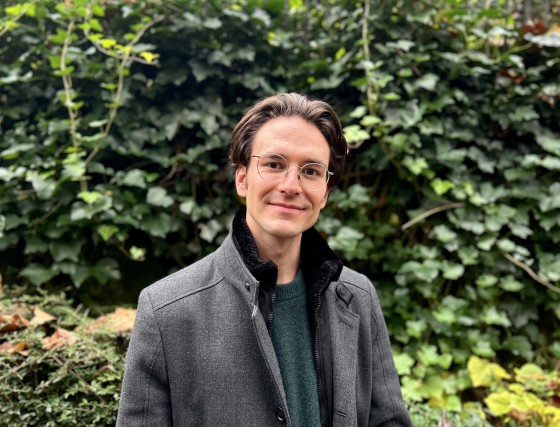
Every year, the International Office and the Career Service at the University of Münster organise a competition in which Erasmus students can submit a video about their experiences abroad. When I was studying in Athens for one semester, a year ago, this competition motivated me to quite consciously record all my impressions. Spending a semester abroad always means taking a step outside your comfort zone – but, when I look back, the uncertainty and stress of that time fade away. What remains are memories and video recordings of antique places, the hustle and bustle of a modern city, the mountain panoramas in the surrounding countryside, and the stunningly beautiful islands off the coast of Athens. My video for the competition not only reminds me of a wonderful, formative Erasmus period – the fact that it also won a prize is one of my highlights this year.
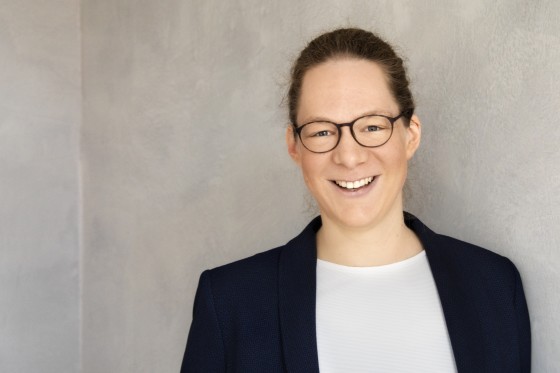
One of my highlights was the spring school entitled “Manuscript Cultures. Interdisciplinary. Digital” which I organised with Dr. Nikola Moustakis (Centre for the History and Culture of the Eastern Mediterranean) and Dr. Paraskevi Toma (Institute of Byzantine Studies and Modern Greek Studies). Our work was interdisciplinary, moving across the boundaries of subject and language (including Greek, Arabic, Ethiopian) and we enjoyed fruitful collaboration with the Diocesan Library, the Diocesan Archives and the Service Center for Digital Humanities (SCDH). With guidance from the SCDH we were able to try our hand at moving from manuscript to digital edition with a chronicle of Vinnenberg monastery from the Diocesan Library. An excursion to the Centre for the Study of Manuscript Cultures at the University of Hamburg provided impressive evidence of successful collaboration between the Humanities and the Natural Sciences in questions relating to manuscripts. As a result, the spring school motivated me to investigate Digital Humanities even more closely and to think beyond subject boundaries in order to find solutions to our research questions.
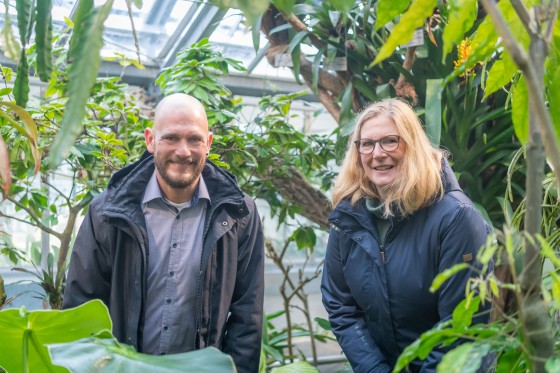
Right at the beginning of 2023 I was lucky enough to experience one of my Uni highlights this year. On January 11 we celebrated the opening of the Epiphytes House in the Botanical Garden. Converting and redesigning the greenhouse had been made possible by plant sponsors, whose financial support helps to realise special projects. Over a period of months, the Garden’s team, headed by Dr. Dennise Bauer (photo) planned the exhibition, selected appropriate materials, designed the walkways, installed a fog system and carried out the planting work. The result of this work is a miniature mountain cloud forest in the centre of Münster, displaying a cross-section of tropical and subtropical plants. These include in particular epiphytes, which are non-parasitic plants growing on the surface of other plants. Besides the diversity of orchids and carnivorous plants, what fascinates me in particular are the lithophytes, which grow on a lava wall.
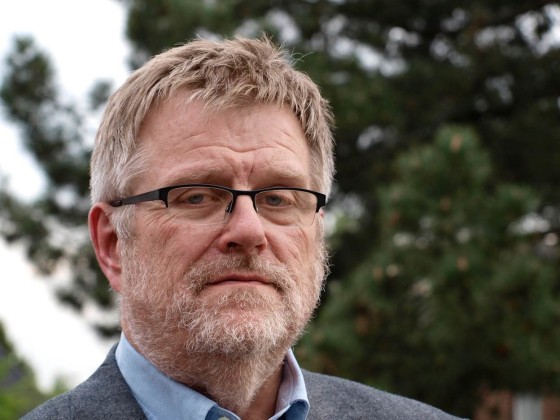
The highlight of my year has been the way everybody pulled together in the department of Sports Psychology. The intensive collaboration among all the colleagues here makes not only outstanding performances possible, but also individual successes – for example, doctoral theses. Without this team effort we wouldn’t for example have been able to win the Congress Prize of the City of Münster for the five-day European Sports Psychology Congress in 2019 with its more than 1,000 participants. The Mayor of Münster, Markus Lewe, presented us with the prize at an official ceremony in the Erbdrostenhof. There was praise especially for the innovative format of the Congress, the outstanding career development opportunities for junior researchers, and the inclusion of ordinary citizens in the Congress events. It is especially in difficult, challenging times that social cohesion in a team is indispensable for success – both at University and in people’s private life.
This article was first published in the University newspaper ‘wissen|leben’, No. 8, 13 December 2023
